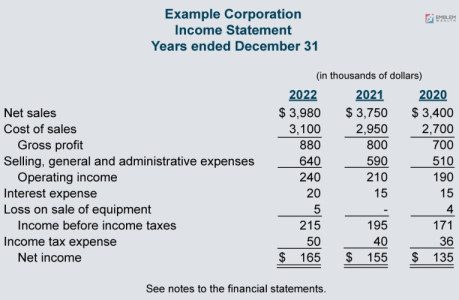Navigating The Complex World Of Tax Treaties: Essential Things To Know About It

Do you want to know the details about the tax treaties? If yes, you must go through the depth of this article to get a clear insight into the tax treaty. The fundamental concept of a tax treaty is not clear to most of us.
You must clear your basics first, then know the complete details. Do not build the castle in the air. A tax treaty is also known as a double tax treaty or tax agreement. It is an international agreement between two countries that aims to prevent or mitigate the double taxation of income.
Double taxation can occur when a taxpayer is subject to tax on the same income in both the country. The country of residence and the country of earnings form an essential part of the collection of taxes.
What Is Tax Treaty?
A tax treaty is also known as a double tax treaty or tax agreement. It is an international agreement between two countries that aims to prevent or mitigate the double taxation of income.
Double taxation can occur when a taxpayer is subject to tax on the same income in both the country. The country of residence and the country of earnings form an essential part of the collection of taxes.
How Does A Tax Treaty Work?
If you are an individual or have a business and want to invest in a foreign country, you might face an issue of which country tax would be applied to your earnings. The residence and source country may further enter into a tax treaty in order to agree on which country is going to tax the investment income.
This helps to prevent the same income from getting taxed twice. Usually, the source country is the one that holds the inward investment. They are also known as the capital-importing country.
On the other hand, the resident country is mainly the country of residence. You can also refer to this country as a capital capital-exporting country.
These two countries come to a treaty, also known as a double tax agreement or DTA, to avoid getting taxed twice.
The Types And Common Features Of Tax Treaties
There are several types of tax deductions that you must be aware of at your end while meeting your needs with ease. You should follow the correct process that can make things work perfectly well in your way. Some of the critical forms of tax are as follows:-
Bilateral Tax Treaties
Definition: Bilateral taxes are agreements between two countries to address and mitigate the issue of double taxation for residents of those countries.
Scope: Each treaty involves only two countries. The terms are explicitly negotiated between those two nations.
Common Elements: Bilateral tax typically covers issues such as the taxation of various types of income, rules for determining residency, and procedures for resolving disputes. Form W-9 is one of the best elements of it.
Multilateral Tax Treaty
Definition: Multilateral taxes involve three or more countries and are designed to create a standardized set of rules that multiple nations agree to follow.
Scope: These treaties are more complex and involve a more significant number of parties. The terms are negotiated collectively among the participating countries. Application of Excise tax can be of great help to you.
Common Elements: Multilateral tax often focuses on establishing consistent rules across multiple jurisdictions. They may include standardized provisions for the avoidance of double taxation and the exchange of information.
Regional Tax Treaty
Definition: Regional tax treaties involve countries within a specific geographic region entering into agreements to address tax-related issues.
Scope: These treaties are limited to countries within a particular region and are tailored to address the unique economic and political factors of that area.
Example: The European Union has its own set of tax-related agreements that member countries may be a party to. A proper tax audit can make things transparent for you.
Comprehensive Income Tax Treaty
Definition: Comprehensive income tax treaties cover a wide range of income types, including business profits, dividends, interest, royalties, and capital gains.
Scope: These treaties aim to provide comprehensive guidelines for the taxation of various types of income to avoid or mitigate double taxation in a broad sense.
Limited Or Special Tax Treaty
Definition: Limited or special tax treaties may focus on specific types of income or specific industries. They are more narrowly tailored to address particular concerns between the treaty partners.
Example: Some tax treaties may specifically address issues related to shipping or air transport income.
Tax Information Exchange Agreements
Definition: While not always referred to as tax treaties, Tax Information Exchange Agreements are bilateral agreements specifically focused on the exchange of information between tax authorities to combat tax evasion.
Scope: TIEAs provide the facility for sharing information related to bank accounts, ownership of companies, and other financial information. You can follow the IRS site as well.
The Common Features Of Tax Treaties
As I have mentioned before, tax treaties are like agreements made between two countries to help people avoid double taxation, administrative hassles, and fiscal evasion. The key features includes:
A reduced withholding tax on factors such as dividends, royalties, and interest.
Exemption from specific income taxes such as shipping and aviation.
The mutual agreement on all the procedures to resolve disputes.
A great exchange of information in order to prevent tax evasion.
Lower taxes on various business profits.
Importance Of Tax Treaty
There are several factors about the importance of tax. You must be well aware of it. Try to understand the realities that can assist you in attaining your needs with ease.
Prevention Of Double Taxation
One of the primary purposes of tax treaties is to prevent or reduce the burden of double taxation on individuals and companies. Without tax treaties, a person or entity could be subject to taxation on the same income in multiple jurisdictions.
Promotion of Border Trade Investments
Tax treaties contribute to a more favorable environment for cross-border trade. Investment by providing clarity and predictability regarding the tax implications of international business activities. This can encourage foreign investment and promote economic growth.
Allocation Of Taxing Rights
Tax treaties talk about which country holds the right to tax particular types of income. Clear rules for the allocation of taxing rights help avoid problems and provide a framework for determining where tax obligations lie.
Reduction Of Withholding Taxes
Taxes often include provisions to reduce or eliminate withholding taxes on specifically cross-border payments such as dividends, royalties, and interest. This can benefit organizations by enhancing cash flow and lowering the cost of capital.
Facilitation of Cross-Border Transactions
By establishing rules for the taxation of business profits, capital gains, and other income, tax treaties make it easier for businesses. To engage in cross-border transactions without facing complex and potentially burdensome tax consequences.
Prevention of Tax Evasion and Avoidance
Tax treaties often include provisions for the exchange of information between tax authorities. This helps prevent tax evasion and avoidance by enabling countries to share information about the financial activities of taxpayers.
Challenges And Limitations Of Tax Treaties
The main aim of tax treaties is to basically simplify the entire cross-border taxation. While it solves the double taxation issues, the tax treaties also come with its own challenges. Here are some of the key issues:
You might face complexity and ambiguity in the treaty language.
There is always a little difficulty in interpreting as well as applying the treaty provisions.
The tax treaties host limited scopes and coverage for the income types.
There can be potential as well as disagreement between the countries when it comes to treaty interpretation.
The dispute resolution process is very slow and cumbersome.
There is a limited exchange of information as well as cooperation between the tax authorities.
These challenges can further lead to uncertainty, double taxation, and disputes. Thus, it is very necessary to navigate the limitations carefully and further maximize the overall benefits of the tax treaties.
How To Determine If A Tax Treaty Applies
Here’s how to determine if a tax treaty applies:
Identify the countries: Determine the country of residence and the country where the income is earned (source country).
Check for a treaty: Verify if a tax treaty exists between these two countries.
Determine residency: Establish your tax residency status in both countries. Treaties often apply to residents of one or both countries.
Identify the type of income: Determine the nature of the income involved, be it salary, dividends, or capital gains.
Consult treaty provisions: Look up the bilateral treaty between the two countries to determine its provisions on that type of income.
Always remember, if a tax treaty applies, that may get rid of double taxation and offer other benefits.
Practical Examples And Case Studies
Here are some of the practical examples of tax treaties,
Lower Tax Rates: A US-based employee working in India might have a more beneficial reduced income tax rate on income from India because of the US-India tax treaty.
Tax Credits: An individual who pays income taxes in both countries can claim the credit paid in one country on their tax liability in the other.
Exchange of Information: Tax authorities of both countries can share information in order to prevent tax evasion and ensure compliance.
Case Study: An Indian company with a subsidiary in the United States would benefit from reduced withholding taxes on dividends remitted to the parent company under the tax treaty between the two countries.
Navigating Tax Treaty Provisions
As we have learned, tax treaties are agreements between two countries to avoid double taxation and tax evasion. They clarify which of the two countries has the right to tax specific types of income, such as dividends, interest, and royalties.
Important provisions contain:
Residence status: It determines the tax law applicable to an individual or company, thereby making it a significant clause in tax treaties.
Source-based taxation: It taxes the income based on its origination source, such as dividends from a company in a given country.
Residence-based taxation: Taxes income according to the taxpayer’s country of residence.
Withholding tax rates: Places a cap on what can be withheld at source with regard to various types of income.
Exchange of information: Facility for countries to exchange any information aimed at preventing tax avoidance and evasion.
An awareness of these provisions will be very essential for crossborder activity individuals and businesses to ensure that they stay within both the domestic and international tax authorities requirements.
Updates And Amendments To Tax Treaties
Tax treaties constantly change due to changing world economic and tax policy. Changes and updates are constantly carried out in order to respond to issues such as BEPS, tax avoidance, base erosion, shifting of profits, and compliance with internationally accepted standards.
Such changes can affect the imposition of taxes on cross-border transactions, dividends, interest, royalties, and capital gains.
International operations require businesses and individuals to stay up-to-date with all the latest updates to maintain their compliance and optimize tax strategies.
Final Take Away
Hence, you must take care of the facts mentioned above to ensure that the scope of the errors is as low as possible. Avoid making things complicated. Otherwise, things can turn worse for you.
The country where you stay and the country from where you earn format crucial parts of the collection of taxes. You should get through the complete process that can make things easier for you in this regard.
Continue Reading:




























Leave A Reply